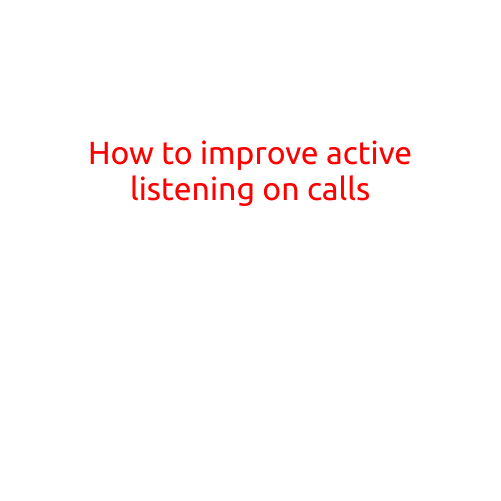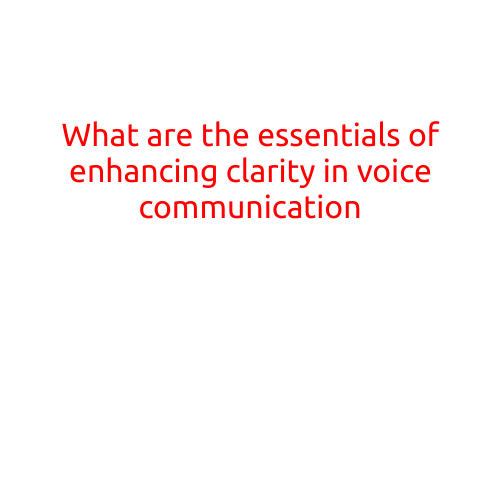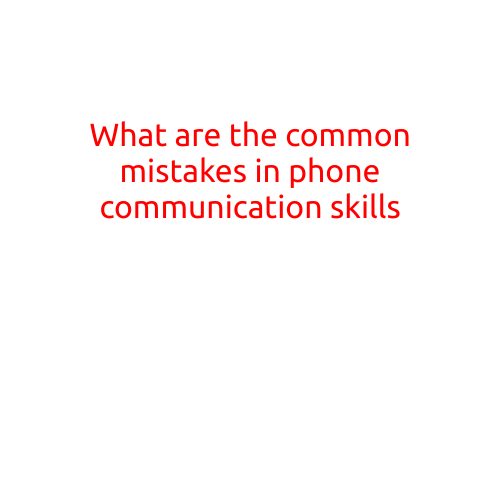
How to Improve Active Listening on Calls
Effective communication is crucial in both personal and professional settings. A vital component of good communication is active listening, which is especially important when it comes to phone calls. Active listening is the process of fully concentrating on what the other person is saying, understanding their perspective, and responding accordingly. In this article, we’ll explore the importance of active listening on calls and provide tips on how to improve your listening skills.
Why Active Listening is Important
In today’s fast-paced world, it’s easy to get distracted while on a call. However, active listening is essential for several reasons:
- Builds trust: When you actively listen to the other person, they feel heard and understood, which helps build trust and strengthens relationships.
- Reduces misunderstandings: Active listening ensures that you grasp the other person’s message correctly, reducing the risk of misunderstandings and miscommunications.
- Improves problem-solving: By actively listening to the other person’s concerns and ideas, you can better understand the issue at hand and come up with effective solutions.
How to Improve Active Listening on Calls
Here are some tips to help you improve your active listening skills on calls:
- Give your full attention: Make sure you’re in a quiet, distraction-free space and avoid multitasking while on a call.
- Use verbal cues: Show that you’re engaged by using verbal cues like “uh-huh,” “okay,” or “I see.” This encourages the speaker to continue.
- Ask open-ended questions: Encourage the speaker to share more information by asking open-ended questions that can’t be answered with a simple “yes” or “no.”
- Paraphrase and summarize: Repeat back what you’ve heard in your own words to ensure you understand the message and show that you’re actively listening.
- Avoid interruptions: Let the speaker finish their thoughts before responding. Avoid interrupting, even if you think you know what they’re going to say.
- Take notes: Writing down key points or ideas can help you stay focused and ensure you don’t forget important details.
- Practice mindfulness: Mindfulness can help you stay present and focused during calls. Take a few deep breaths before each call to calm your mind and reduce distractions.
- Use technology to your advantage: Consider using tools like call recording software or transcription apps to help you stay focused and ensure you capture important information.
- Be patient: Active listening requires patience, so take your time and don’t rush the conversation.
- Seek feedback: Ask the person you’re speaking with if they feel heard and understood. Seek feedback on your listening skills and use it to improve over time.
Conclusion
Improving your active listening skills on calls can have a significant impact on your personal and professional relationships. By following these tips, you can ensure that you’re fully present and engaged during conversations, reducing misunderstandings and improving communication. Remember, active listening is a skill that takes practice, so be patient and persistent. With time and effort, you’ll become a more effective communicator and build stronger relationships.





